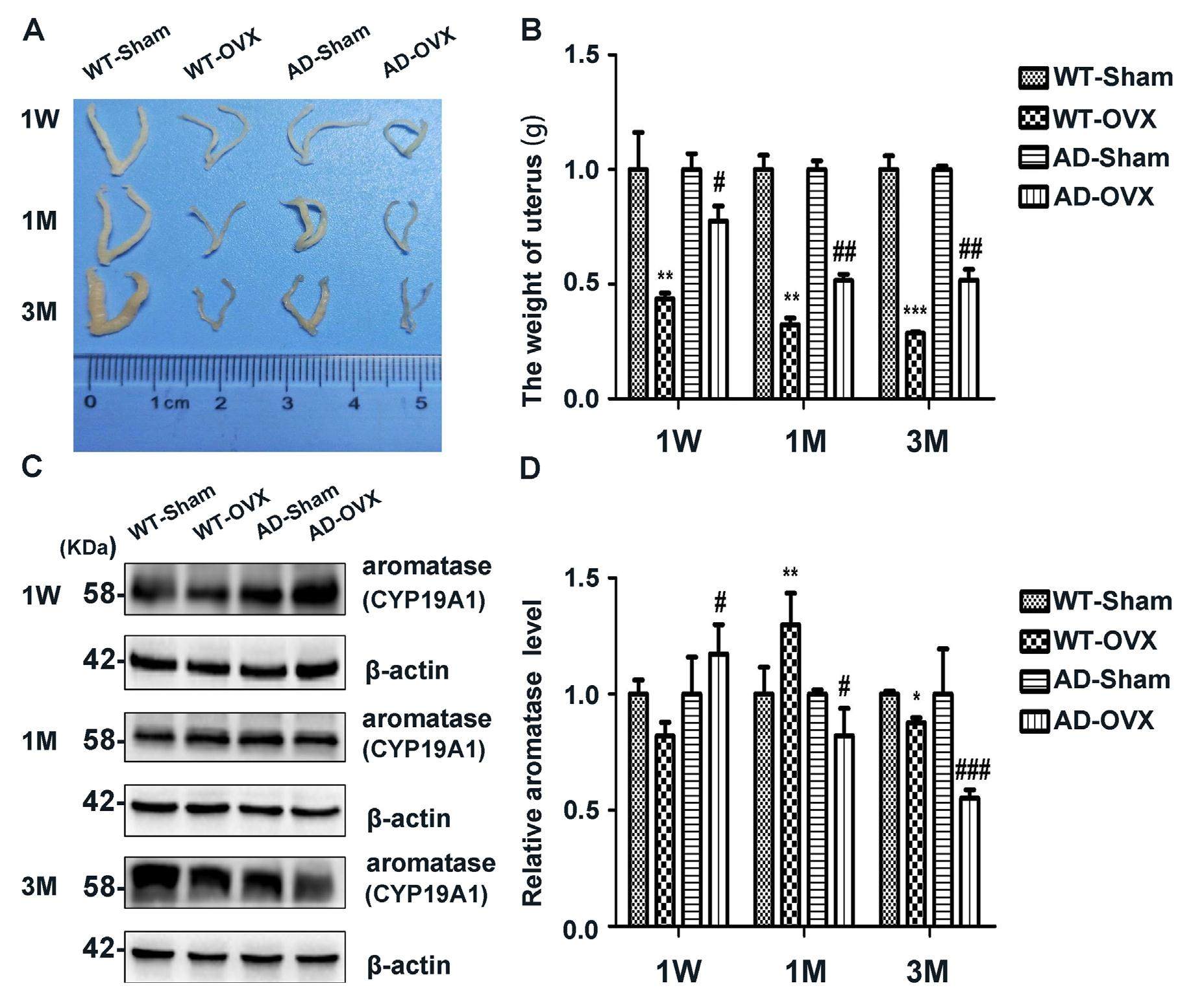
Estrogen deficiency exacerbates learning and memory deficits associated with glucose metabolism disorder in APP/PS1 double transgenic female mice


Alterations in glucose metabolism occur in the brain in the early stage of Alzheimer's disease (AD), and menopausal women have more severe metabolic dysfunction and are more prone to dementia than men. Although estrogen deficiency-induced changes in glucose metabolism have been previously studied in animal models, their molecular mechanisms in AD remain elusive. To investigate this issue, double transgenic (APP/PS1) female mice were subjected to bilateral ovariectomy at 3 months of age and were sacrificed 1 week, 1 month and 3 months after surgery to simulate early, middle and late postmenopause, respectively. Our analysis demonstrated that estrogen deficiency exacerbates learning and memory deficits in this mouse model of postmenopause. Estrogen deficiency impairs the function of mitochondria in glucose metabolism. It is possible that the occurrence of AD is associated with the aberrant mitochondrial ERb-mediated IGF-1/IGF-1R/GSK-3β signaling pathway. In this study, we established a potential mechanism for the increased risk of AD in postmenopausal women and proposed a therapeutic target for AD due to postmenopause.
